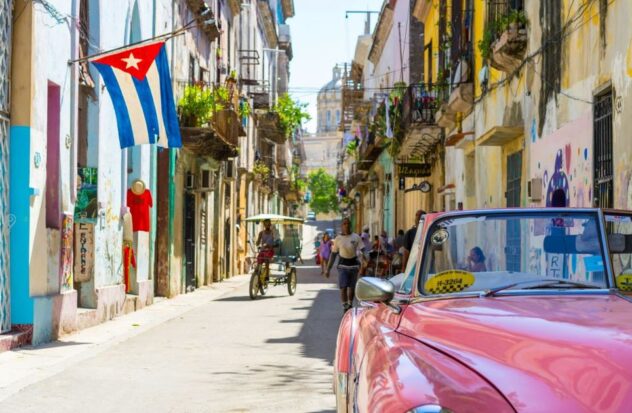Havana Cuba faces the worst crisis economic crisis in decades that is felt on the streets through shortages, a sustained increase in prices, blackouts, transportation difficulties and a massive migration.
Amid a severe financial crisis and a contraction of the Gross Domestic Product in 2023, Cuban authorities reported to the National Assembly of People’s Power a slight increase in the strategic tourism sector for this year; however, they acknowledged that inflation will continue to be around 30%.
“The context of the first half of the year is characterized by a complex scenario, high fiscal deficit and monetary emissions above what is recommended, insufficient foreign currency income, limitations with fuel and energy, high and persistent inflation and insufficient effective linkages between economic actors,” warned the official newspaper Granma on Tuesday when reporting the appearance of the Minister of Economy and Finance, Joaquin Alonso Vazquez.
According to Alonso Vázquez, the export of tobacco, charcoal and biopharmaceutical products was fulfilled. The same applies to what the regime calls the export of medical or professional services, which is nothing more than the slavery to which doctors sent to sell their services abroad are subjected, but they are deprived of more than 70% of their salary, which remains in the hands of the dictatorship.
According to the Castro official, the expected revenues from nickel, sugar and rum fell short of expectations.
Tourism, one of the most dynamic areas on the island, grew in this first half of the year by just 1.8% compared to the same period in 2023 with 1.8 million visitors, but only 51% of what was achieved in 2019 before the COVID-19 pandemic.
The day before, it was officially reported that the contraction of the Gross Domestic Product in 2023 was 1.9%, which adds to the fall of 10.9% in 2020 and the modest advances of 1.3% and 1.8% in 2021 and 2022.
The 470 parliamentarians will also discuss sensitive issues such as transport, housing and energy, and after their work in committees they will begin their plenary session on Wednesday, the first of two annual sessions.
Collapse of the sugar sector
A lack of labor, amid the largest exodus recorded in Cuba since the triumph of the revolution in 1959, forced a sugar company in the country to hire prisoners to fulfill its production plan.
Amaury Depestre, a deputy for Cienfuegos and director of the “14 de Julio” sugar factory in that central Cuban province, explained that “in order to complete the last harvest and comply with the plan, he had to find additional personnel, including 113 inmates who joined the work.”
Since 2021, the state-owned group AzCuba has been trying to halt the decline of the sector, but the 2022-2023 harvest barely reached 350,000 tons of sugar, 4.4% of what Cuba produced until the early 1990s.
AzCuba President Julio García did not inform parliamentarians about the final results of the harvest that ended in May and that Cuba had to carry out with “little availability of lubricants, fuels and other inputs.”
The wave of Cuban migration that has been taking place since late 2021 is unprecedented, while the communist island is immersed in its worst economic crisis in three decades, with soaring inflation, power outages and shortages of food, medicine and fuel.
More than 560,000 Cubans entered the United States irregularly from January 2022 to May 2024, according to the U.S. Customs and Border Protection Office, and almost 100,000 flew directly to that country thanks to a temporary stay permit known as Parole, which was implemented in January 2023 by the Joe Biden government.
There is no official figure on Cuban migration to other countries in Latin America and Europe.
Source: With information from AFP and AP



